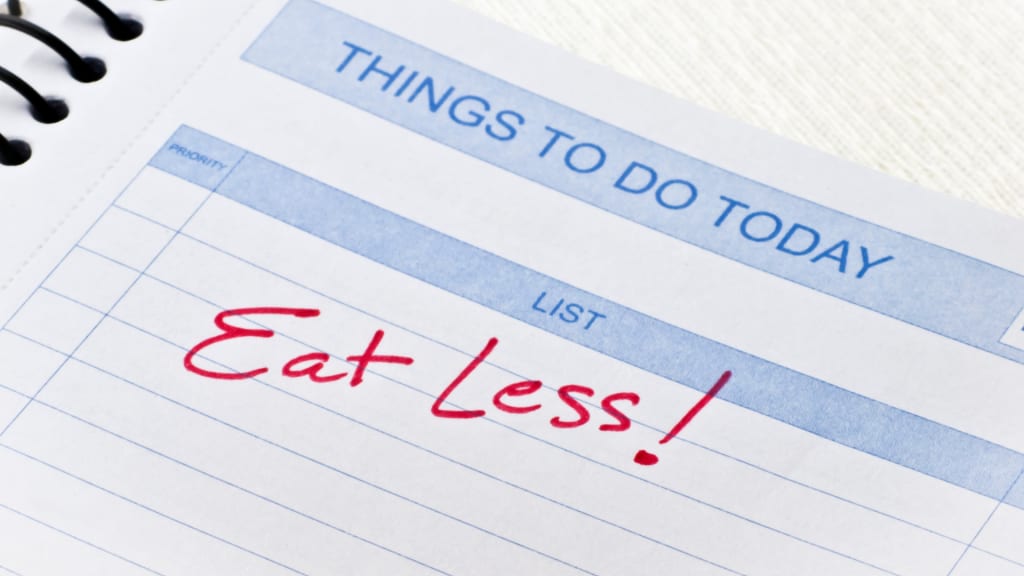Does Eating Less Affect Our Weight?
how eating less affects our weight

We've all heard someone say, If you eat less, you'll lose weight, but why does this work?
The scientific explanation is much more complicated than it appears on the surface.
Here, we explain how eating less affects our weight—and why this advice might not be as clear-cut as it seems!
The biology behind eating less
When we eat less food than our body requires to maintain a certain weight, it often leads to weight loss.
Some of that is because metabolism slows down when you're eating fewer calories and some of it is because you end up burning more calories than you consume.
There's a limit to how many calories your body can naturally process at any given time, so if you consistently eat less than your natural calorie limit or take in fewer calories through exercise (or both), your weight will eventually drop.
As we've written about before, several factors are at play when it comes to losing weight; most people will lose around 1-2 pounds per week if they stick with their healthy habits long enough.
Why do some people lose weight when they reduce their calorie intake?
When you reduce your calorie intake, your body's fat-burning machinery kicks into high gear.
To create and store energy from food, your body breaks down fats into fatty acids and triglycerides.
These molecules are then converted into an energy molecule called adenosine triphosphate (ATP).
This process is known as beta-oxidation. When you reduce calories in your diet to 800 a day—from 1,200 or 1,500 a day—your body goes through a natural burning of more stored fat for fuel instead of breaking down muscle for energy.
When you reduce calories in your diet to 800 a day—from 1,200 or 1,500 a day—your body naturally starts tapping more stored fat for energy.
Restricting calories has health risks.
There's a good reason that many dietitians recommend cutting calories as a last resort when you're trying to lose weight.
Research has shown that you burn fewer calories by eating less.
A 2020 study in The Journal of Clinical Endocrinology & Metabolism found that people who restricted their daily calorie intake by 3,000 calories over 16 weeks gained just about two pounds—and researchers couldn't determine whether it was from fat or muscle mass.
A 2011 study published in Obesity also showed similar results about body composition and changes in weight over time.
The bad news about calorie restriction
Restricted calorie diets are a temporary fix and can be unhealthy at worst. Restricting calories will make you lose weight quickly, usually within two weeks. It's generally very easy to stick to as well.
The problem is that any time you restrict calories like that, your body goes into starvation mode—meaning it thinks it's being denied food and starts storing fat for future use.
When you break your calorie restriction, a sudden influx of food means an inevitable increase in your weight.
If you want to lose weight safely over time, focus on creating healthy habits that promote weight loss over time instead of counting calories or cutting them drastically.
So what should we do?
The short answer is yes—eating less affects your weight. Researchers have found that when people eat less, they will lose weight.
There are several factors at play here, but one is simple math.
To lose 100 calories (or 1 pound), you need to create a deficit of 3,500 calories over time.
If you did nothing else but reduce your calorie intake by 500 each day, you would accomplish your goal in just under three weeks without doing anything more strenuous than sitting on a couch and holding your leftovers (see above).
So if we're eating 500 fewer calories per day than our body needs, we'll be losing approximately one pound per week - 13 pounds in three months!
How much should I eat if I want to lose weight and be healthy?
To lose weight and be healthy, you should aim to eat between 1400-1600 calories per day.
If you are exercising regularly, you can eat more. But if you're sedentary, try to stick with no more than 1600 calories per day.
It may take some trial and error to find out what is best for your body!
The key here is being aware of how much food you eat in a day to don't overeat.
Research has shown that people who weigh themselves daily lose more weight than those who do not!
How many calories should I eat every day if I want to maintain my current weight?
The amount of calories you should consume daily for weight maintenance depends on your age, sex, and height.
For example, women younger than 30 should consume between 1,600 to 2,400 calories a day. A man under 6 feet tall could have anywhere from 2,200 to 3,000 calories a day.
On average, adults about 31 to 50 years old need about 2,200 calories per day. People over 51 require fewer calories because our metabolism slows down as we age, and we begin to lose muscle mass.
But if you're not paying attention, you may eat more calories than necessary without realizing it.
Once again, that comes back to keeping track of what you eat!
Exercise doesn't make up for eating more than you burn.
About the Creator
Happy Life Official
I write about relationships, health, happiness, and much more to ease your life routine.






Comments
There are no comments for this story
Be the first to respond and start the conversation.